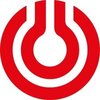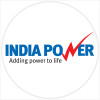Filter interviews by
GE Power Conversion Mechanical Design Engineer Intern Interview Questions and Answers
GE Power Conversion Mechanical Design Engineer Intern Interview Experiences
1 interview found
I applied via Campus Placement and was interviewed in Jul 2021. There were 4 interview rounds.
Interview Questionnaire
2 Questions
- Q1. Basic questions related to manufacturing material science and thermodynamics
- Q2. About VFD drives and circuits
Interview Preparation Tips
Top trending discussions






Interview questions from similar companies

Electrical Engineer Interview Questions & Answers
Dhoot Transmissionposted on 18 Apr 2022
I applied via Walk-in and was interviewed before Apr 2021. There were 2 interview rounds.

(2 Questions)
- Q1. Basic electrical engineering
- Q2. Transmission line transformer electrical wiring etc
Interview Preparation Tips
I am diploma engineering student in final sem in indore city svp group pls sir I am very interested electrical working job on
Dhoot transmission my first choice?

Interview Questionnaire
1 Question
- Q1. How do work step up transformer
- Ans.
A step-up transformer is used to increase the voltage in an electrical circuit.
Step-up transformers have more turns in the secondary coil than in the primary coil.
They work based on the principle of electromagnetic induction.
The primary coil is connected to a power source with a lower voltage, while the secondary coil is connected to the load.
The increased voltage in the secondary coil is proportional to the ratio of t...

(2 Questions)
- Q1. Pv Solar plant Commissioning process
- Ans.
The commissioning process of a PV solar plant involves testing, adjusting, and optimizing the system to ensure it is functioning properly.
Testing the electrical components and connections to ensure they are working correctly
Adjusting the system settings to maximize efficiency and output
Optimizing the performance of the solar panels to achieve the desired energy production
Checking for any potential issues or malfunction
- Q2. Transformer types of testing
- Ans.
Transformer types of testing include routine tests, type tests, and special tests to ensure proper functioning and safety.
Routine tests include insulation resistance, turns ratio, and polarity tests.
Type tests are conducted on a prototype to verify design parameters like temperature rise and short-circuit withstand.
Special tests may include impulse voltage, partial discharge, and noise level tests.
Testing ensures trans...
Interview Preparation Tips
Skills evaluated in this interview

(2 Questions)
- Q1. About your self
- Q2. Technical , Management

I applied via Job Portal and was interviewed in Jan 2023. There were 2 interview rounds.

(6 Questions)
- Q1. Types of seal. Types of bearing.
- Ans.
Seals: mechanical, hydraulic, pneumatic. Bearings: ball, roller, plain, magnetic, fluid.
Mechanical seals prevent leakage between two surfaces in relative motion.
Hydraulic seals prevent leakage of fluid in hydraulic systems.
Pneumatic seals prevent leakage of gas in pneumatic systems.
Ball bearings use balls to reduce friction between two surfaces.
Roller bearings use rollers to reduce friction between two surfaces.
Plain b...
- Q2. 15/02/23 to 17/02/2023
- Q3. Types of maintenance.
- Ans.
Types of maintenance include corrective, preventive, predictive, and proactive maintenance.
Corrective maintenance involves fixing a problem after it has occurred.
Preventive maintenance involves regularly scheduled maintenance to prevent problems from occurring.
Predictive maintenance involves using data and analysis to predict when maintenance will be needed.
Proactive maintenance involves identifying and addressing pote...
- Q4. Pump. CLARIFIER. Gearbox.
- Q5. Types of seal. Blower.
- Ans.
There are various types of seals used in blowers such as labyrinth seals, mechanical seals, and oil seals.
Labyrinth seals are non-contact seals that use a series of rotating and stationary blades to create a tortuous path for the air to pass through.
Mechanical seals use a rotating and stationary face to create a seal and prevent leakage.
Oil seals are used to prevent lubricant from leaking out of the blower and contamin...
- Q6. 12/02/23 to 14/02/23
Interview Preparation Tips


(2 Questions)
- Q1. What is Transformer
- Ans.
A transformer is an electrical device that transfers electrical energy between two or more circuits through electromagnetic induction.
Transformers are used to increase or decrease the voltage in an electrical circuit.
They consist of two or more coils of wire, known as windings, that are wound around a core made of magnetic material.
The primary winding receives electrical energy from a power source, while the secondary ...
- Q2. What is rectifier
- Ans.
A rectifier is an electrical device that converts alternating current (AC) to direct current (DC).
Rectifiers are commonly used in power supplies to convert AC voltage to DC voltage.
They are made up of diodes, which allow current to flow in only one direction.
Rectifiers can be half-wave or full-wave, depending on the number of diodes used.
Examples of rectifiers include bridge rectifiers, vacuum tube rectifiers, and soli

Electrical Engineer Interview Questions & Answers
Dhoot Transmissionposted on 27 Jan 2024
I applied via Company Website and was interviewed before Jan 2023. There was 1 interview round.
(5 Questions)
- Q1. Taranformer rating ....... KVA MVA HZ
- Q2. Ohm low ...........
- Q3. Current of unit .......
- Ans.
The question is asking about the current of a unit.
The current of a unit refers to the amount of electric current flowing through a specific unit or device.
It is typically measured in amperes (A) or milliamperes (mA).
The current of a unit can vary depending on the specific device or circuit being discussed.
For example, the current of a unit could refer to the current flowing through a resistor, a transistor, or a motor...
- Q4. Transformers rating in KVA
- Ans.
Transformers are rated in KVA (kilovolt-amperes) to indicate their power capacity.
KVA stands for kilovolt-amperes, which is a unit of apparent power.
The KVA rating of a transformer indicates the maximum amount of power it can handle.
Transformers are available in various KVA ratings to suit different power requirements.
Higher KVA ratings indicate higher power capacity.
For example, a transformer with a 100 KVA rating can
- Q5. What is loop law?
- Ans.
Loop law, also known as Kirchhoff's voltage law, states that the sum of the voltages in any closed loop in a circuit is zero.
Loop law is a fundamental principle in electrical engineering.
It is also known as Kirchhoff's voltage law (KVL).
According to loop law, the algebraic sum of the potential differences (voltages) around any closed loop in a circuit is always zero.
It is based on the principle of conservation of energ...
Interview Preparation Tips

Electrical Engineer Interview Questions & Answers
Dhoot Transmissionposted on 11 Jun 2024
(2 Questions)
- Q1. What is the Transformer
- Ans.
A transformer is a device that transfers electrical energy between two or more circuits through electromagnetic induction.
Consists of two coils of wire, known as primary and secondary coils
Primary coil receives electrical energy and creates a magnetic field
Magnetic field induces a voltage in the secondary coil, transferring energy
Used in power distribution, voltage regulation, and electrical isolation
- Q2. Electrical 8 equipment
Interview Preparation Tips

(1 Question)
- Q1. Tell me about yourself
(1 Question)
- Q1. Explain about tooling
- Ans.
Tooling refers to the process of designing and manufacturing tools or equipment used in production.
Tooling involves creating molds, dies, jigs, fixtures, and other equipment used in manufacturing processes.
It plays a crucial role in ensuring the quality and efficiency of production.
Tooling can be customized based on specific production requirements.
Examples of tooling include injection molds for plastic parts, stamping...
Interview Preparation Tips
GE Power Conversion Interview FAQs
Tell us how to improve this page.
Interview Questions for Popular Designations
- Mechanical Engineer Interview Questions
- Mechanical Engg. Design Interview Questions
- Mechanical Maintenance Engineer Interview Questions
- Diploma Mechanical Engineer Interview Questions
- Mechanical Technician Interview Questions
- Senior Engineer Mechanical Interview Questions
- Mechanical Supervisor Interview Questions
- Junior Mechanical Engineer Interview Questions
- Show more
Interview Questions from Similar Companies
Fast track your campus placements
|
Commissioning Specialist
28
salaries
| ₹6.4 L/yr - ₹12.5 L/yr |
|
Lead Engineer
16
salaries
| ₹13 L/yr - ₹17.6 L/yr |
|
Electrical Engineer
11
salaries
| ₹3.1 L/yr - ₹11.7 L/yr |
|
Lead Commissioning Specialist
9
salaries
| ₹13 L/yr - ₹20 L/yr |
|
Power Electronics Engineer
8
salaries
| ₹10.9 L/yr - ₹14.1 L/yr |

Dhoot Transmission

Renewsys India

SHV Energy

R.K.M Powergen
- Home >
- Interviews >
- GE Power Conversion Interview Questions >
- GE Power Conversion Mechanical Design Engineer Intern Interview Questions











